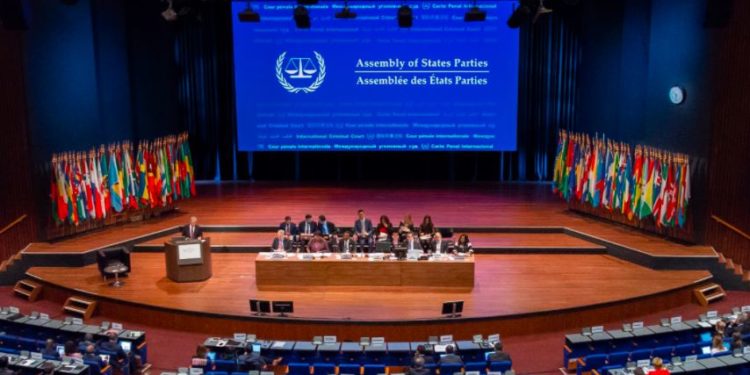By Thomas Verfuss in The Hague
For the first time in history there will be a vote on Friday on who should become the new chief prosecutor of the International Criminal Court (ICC). No consensus could be reached to appoint Fatou Bensouda’s successor by acclamation, in spite of months of strenuous efforts of the presidency of the ASP, the assembly of the 123 states that are parties to the Rome Statute, the founding treaty of the ICC.
Four states have nominated candidates for the voting procedure scheduled to start at 10 am (New York time) at UN Headquarters. The choice will be among Karim Khan (UK), Fergal Gaynor (Ireland), Carlos Castresana (Spain) and Francesco Lo Voi (Italy). It is not clear yet how many rounds of voting will be needed for one candidate to obtain the required majority of 62 states.
ASP president Kwon O-Gon tried to build consensus around Khan after he had emerged as front runner during informal “opinion polls” among the 123 member states. But, as one ambassador puts it, you can’t build consensus if some countries let their objections become vetoes – no consensus without compromise. Then Spain gave the final blow to the consensus building process when it decided to nominate Castresana.
Khan is widely credited for his experience, intellectual mindset, legal and trial skills and integrity. But the problem is that he has been deeply involved on the defence side with situations he would have to deal with as ICC Prosecutor: he represented vice-president William Ruto of Kenya and Saif Al-Islam Gaddafi, son of the murdered leader of Libya. Khan says that he would recuse himself from these “situation countries” as a matter of integrity, but these assurances seem not to be enough for some states.
Others point to his current position as assistant secretary-general of the United Nations who leads a war crimes investigation in Iraq into crimes committed by Da’esh/ISIL. One must be close to the British and American governments to obtain that post, some say, governments whose men Khan might have to investigate as ICC Prosecutor.
Gaynor was second in the informal “opinion polls”. Some diplomats suggested that consensus should be built around him. But then others said that he has never led a big organization like the Office of the Prosecutor (OTP) and not regularly rubbed shoulders with government ministers like other chief prosecutors of international courts before him. The ICC Prosecutor must not only organize investigations and prosecutions – [s]he also is an international diplomat in the constant search for support from states, be it to obtain arrests of the fugitives or to find the money to run the organization in the first place.
Castresana was clearly in the last of the three positions in the unofficial soundings among states. Lo Voi was not included at all in the last round. But experienced insiders point out that the dynamics of a secret ballot are completely different from those of diplomatic consensus building. So it is impossible to predict what will happen on Friday – or as of Friday, as the voting process may take time and may be interrupted to convince one or more countries to retract their hapless candidates.
The Rome Statute and the rules of procedure of the ASP don’t say what must happen after several inconclusive rounds of voting. But the matter was dealt with in various resolutions in the early years after the entry into force of the Rome Statute, one veteran diplomat recalls. There should be a break for consultations after three inconclusive rounds of voting. Then, if there is still no new Prosecutor after the fourth round, there should be a fifth one between the two strongest candidates only.
Some point to the end of Bensouda’s tenure in June – but one ambassador says the court can do for a while without chief prosecutor as it has a deputy prosecutor, and the community of states should take the time to find the best candidate.
The first two ICC Prosecutors, Luis Moreno Ocampo and Fatou Bensouda, were appointed by consensus after lots of horse-trading behind the scenes. This time states led by Kwon wanted to do things better and let independent experts do a pre-selection, next to a committee of diplomats. The process started to derail last year when the Committee on the Election of the prosecutor submitted a shortlist of four to the ASP Bureau. Many eyebrows were raised because heavyweights that everybody expected to be on the list, like Khan and Serge Brammertz, were missing. The list was then expanded, but no compromise found. Now it is up to individual states parties to propose their candidates and obtain a majority.







